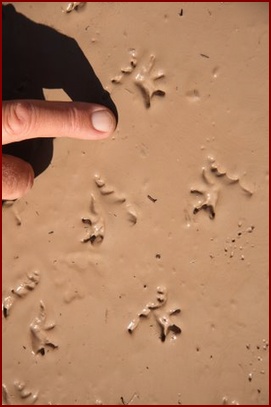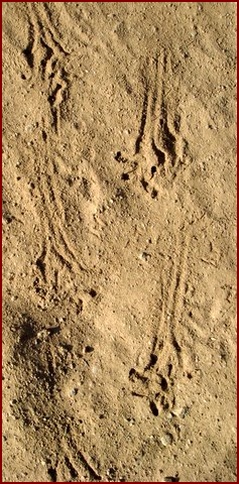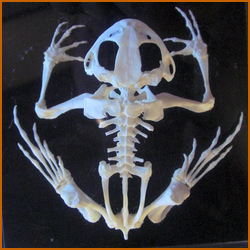COPYRIGHT 2009 DICK NEWELL
 |

ANALYZING THE TOAD TRACK

Front~Rear: The front foot will show four digits that point towards the center of the trail. The rear track will appear as a series of five dots, four of which will be in a straight line that is angled outward. Frequently you will see the toes on this foot dragging in the direction of travel. This photo shows both front and back feet but since the toad had gone through the mud in several directions its difficult to interpret.
 |
 |
 |
Gait: A slow crawl or walk and a hop is common.
The track of the common toad is one of the most frequently observed tracks in the field. Their wispy toe drag makes their tracks very apparent and they are often found crawling or hopping down the middle of a dirt road.
Right~Left: Position within the track will separate the front feet. Each rear foot will be angled outward at about 30 degrees from the direction of travel and the two front tracks will be inside of the rear tracks. Depending on the substrate you may or may not see the drag mark of the body. When it hops it will occasionally leave an image of the body in the dust.
 |
TOAD
 |



This skeletal photograph shows the alignment of the digits for this species.
 |
